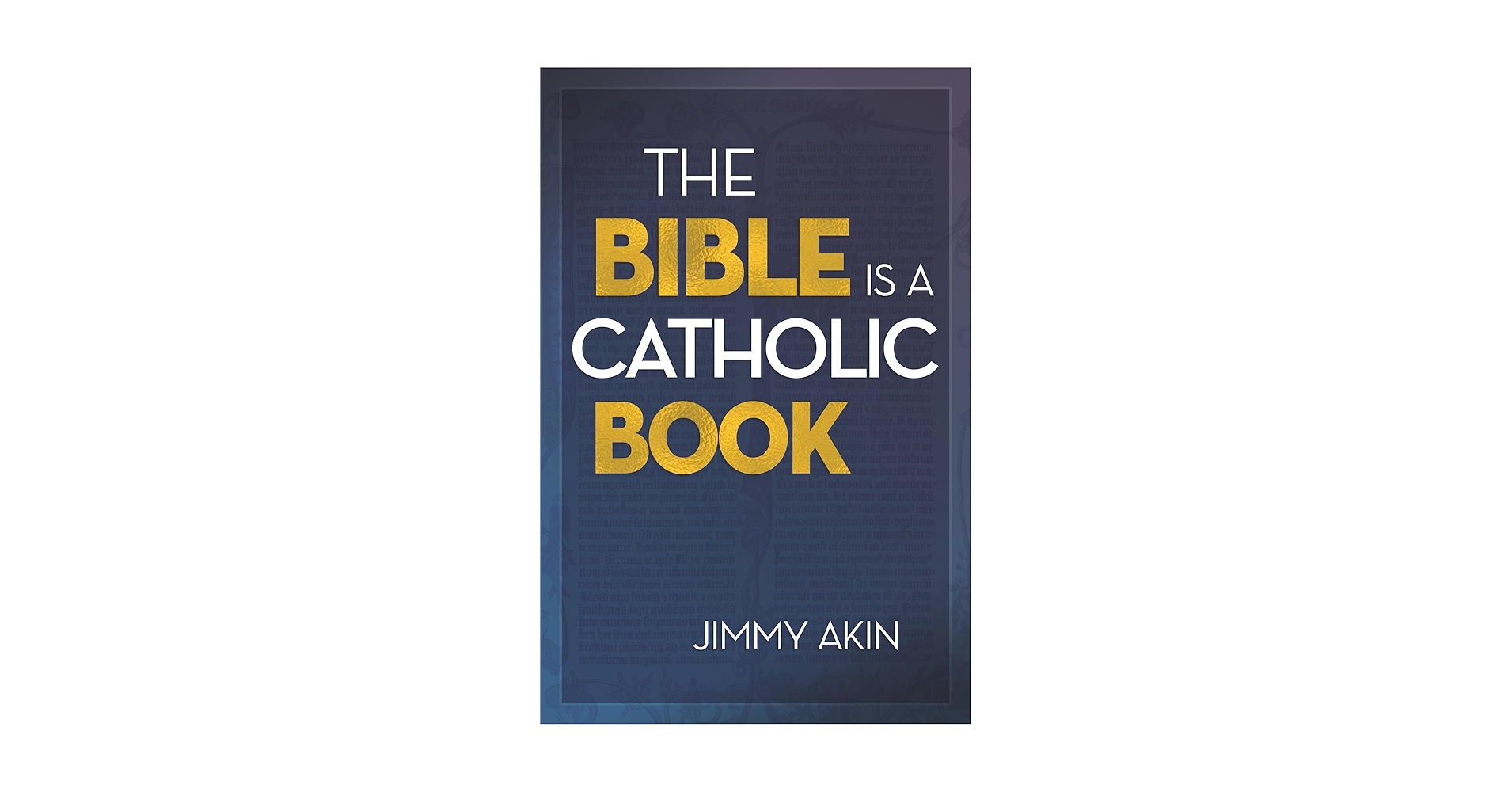Have you ever considered the fascinating connection between the Bible and the Catholic Church? Join us on a journey of exploration as we uncover the profound significance of the Bible as a Catholic book. Understanding this relationship can provide valuable insights into the rich traditions, teachings, and practices of the Catholic faith.
Delving into the Bible as a Catholic book offers a unique perspective that can deepen one’s appreciation for both scripture and the Catholic Church. By recognizing the integral role of the Bible in Catholic tradition, individuals can gain a deeper understanding of their faith and develop a stronger spiritual connection. Exploring the interconnectedness of these two pillars can lead to a richer spiritual life and a greater sense of unity within the Catholic community.
Unveiling the Truth: The Bible’s Deep Roots in Catholicism
The Bible is a Catholic Book
The Bible, as we know it today, is a foundational text of the Catholic Church. It is a collection of sacred scriptures that holds immense importance in Catholic theology and worship. The Bible is divided into two main sections: the Old Testament and the New Testament, containing a total of 73 books.
The Old Testament consists of 46 books and includes key texts such as Genesis, Exodus, Psalms, and Isaiah. These writings are considered by Catholics to be inspired by God and offer guidance on faith and moral living. The New Testament, with 27 books, focuses on the life, teachings, death, and resurrection of Jesus Christ. It also contains the letters of Apostles and early Christian leaders, which provide insight into the beliefs and practices of the early Church.
Catholics view the Bible as the Word of God, authoritative in matters of faith and doctrine. It serves as a source of spiritual nourishment, offering guidance, comfort, and inspiration to believers. The reading and study of the Bible are integral parts of Catholic worship, with scripture passages often included in liturgical celebrations and prayers.
Throughout history, the Catholic Church has played a significant role in preserving and interpreting the Bible. The process of canonization, which determined the official list of sacred scriptures, was guided by the Church’s teachings and traditions. Additionally, the Church Fathers and early theologians developed interpretations and commentaries on the Bible that continue to influence Catholic theology today.
The Catholic Church emphasizes the importance of reading the Bible within the context of tradition and Magisterium, which provide authoritative interpretations and guidance on scripture. The Church encourages Catholics to engage with the Bible through personal study, prayer, and reflection, seeking to deepen their understanding of God‘s word and apply it to their lives.
In summary, the Bible is a central and cherished text within the Catholic Church, revered for its sacredness and significance in the lives of believers. It serves as a cornerstone of Catholic faith, guiding and shaping the beliefs and practices of the Church throughout history and into the present day.
Is the Bible a Catholic document?
The Bible is not exclusively a Catholic document. It is a collection of sacred texts that are foundational to both Judaism and Christianity. The Christian Bible includes the Old Testament, which is also part of the Hebrew Bible, and the New Testament. While the Catholic Church played a significant role in the formation and preservation of the Bible as we know it today, the Bible is considered sacred scripture by various Christian denominations, including Protestant and Orthodox churches.
What religion is the Bible a book of?
The Bible is a sacred text of Christianity.
Are the Bible and Catholic Bible the same?
The Bible and Catholic Bible are similar but not exactly the same. The Bible refers to the collection of sacred scriptures that are considered holy by both Jews and Christians. It consists of two main parts: the Old Testament and the New Testament.
The Catholic Bible, on the other hand, includes additional books known as the Deuterocanonical books or Apocrypha, which are not found in Protestant versions of the Bible. These books were officially accepted as part of the Bible by the Roman Catholic Church at the Council of Trent in the 16th century.
Therefore, while the Bible and Catholic Bible share the same core texts, the Catholic Bible contains extra books that are not included in all versions of the standard Bible.
How to tell if the Bible is Catholic?
To determine if a Bible is Catholic, look for the following key elements:
1. Deuterocanonical Books: Catholic Bibles include several additional books in the Old Testament that are not found in Protestant Bibles. These books, also known as the Apocrypha, include Tobit, Judith, Wisdom, Sirach, Baruch, and others.
2. Imprimatur and Nihil Obstat: A Catholic Bible will typically contain an imprimatur and nihil obstat, indicating official approval from the Catholic Church regarding its doctrinal content.
3. Inclusion of the LXX: Catholic Bibles often include references to the Septuagint (LXX), an ancient Greek translation of the Old Testament that is authoritative in Catholic tradition.
4. Traditional Catholic Texts: Look for traditional Catholic texts in the Bible, such as the “Hail Mary” prayer, the Act of Contrition, or the “Prayer of Saint Francis.”
5. Liturgical References: Some Catholic Bibles may include additional liturgical references, readings, and prayers specific to Catholic worship and practice.
By examining these elements, you can determine if a Bible is Catholic based on its content and features.
